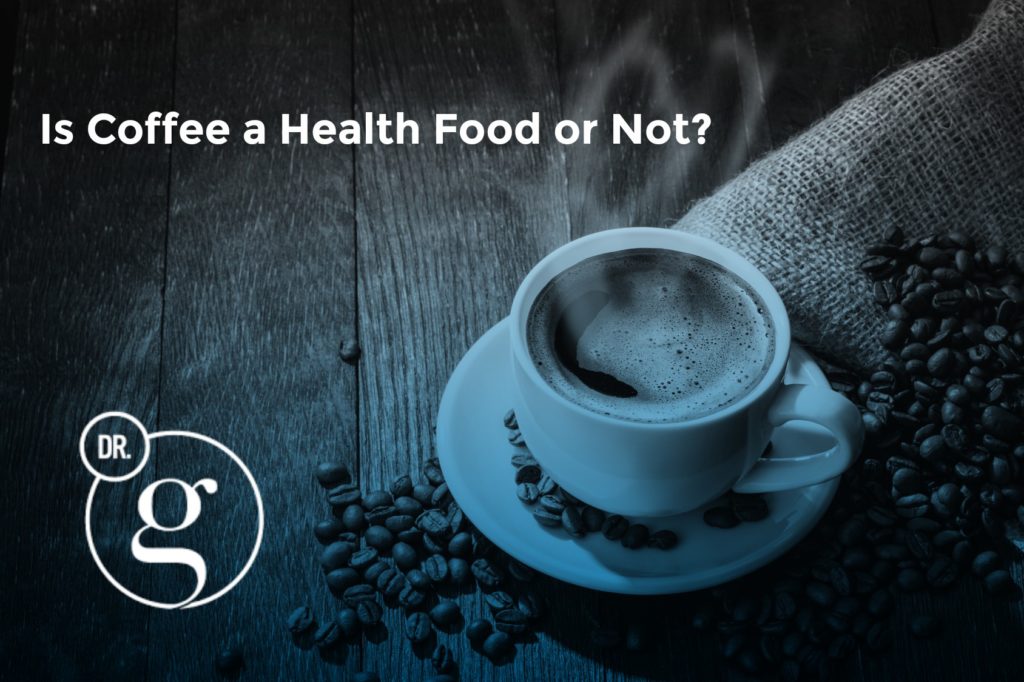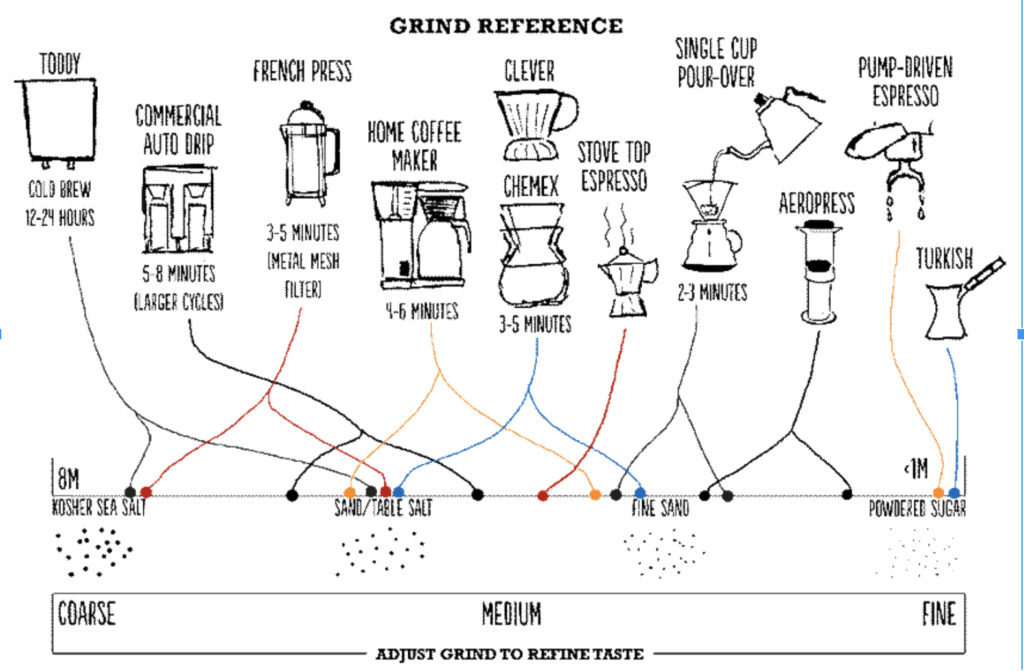

Is Coffee a Health Food or Not?
Posted on August 10, 2018 by Dr. G
Coffee is by far the most researched food in the world. After centuries of myth, conventional wisdom, rumor and poor research we have finally begun asking the right questions and the overwhelming majority of the evidence is YES, coffee is a health food.
You may find that coffee can be an excellent addition to your daily routine in the form of ritual much the way that tea service is ritualized in the east. The Japanese have been practicing tea ceremony for over 700 years as a form of self cultivation.
Morning rituals surrounding tea and coffee are very meditative and can be a great way to prepare for an unpredictable day. I suggest starting early without the noise and distractions associated with the news, email, social media, etc. There is plenty of time for all that later in the day. This is your time to set the day in motion with deliberate intention and mental preparedness.
Now wait a minute, before you go to your pantry pull out the folgers, use a bleached white coffee filter and put it in your all plastic drip coffee maker. We should discuss a few things.
Research and reality can be very different
We know the overwhelming majority of the evidence states that fish is a health food too, but that doesn’t mean going to your local fast food chain and ordering ‘fish sticks’ is going to give you the benefits that the research suggests. We know there are dangers associated with fish that can make it very unhealthy. For example some fish have a lot of heavy metals, the US government suggests that pregnant women do not consume more than 2 cans of tuna per month. We know that the benefits of fish are all but erased by some of the unclean and unnatural farming practices. And finally the ‘last mile’ to your plate makes a difference, how the meal is prepared.
How can you benefit from Coffee
Here is what coffee can do for you.
- Reduce risk of heart disease and stroke
- Reduce the risk for cancer
- Improve brain function and protect against diseases like Alzheimer’s and Parkinson’s.
- Reduced risk for diabetes
- Improve exercise performance.
It’s about the coffee, not the caffeine.
When we discuss the benefits of coffee, we have to recognize that those benefits are derived from all of the components and characteristics of coffee from the tree to the cup. We have to look at coffee as a plant with many components and characteristics that are not limited simply to caffeine. The benefits of coffee are not attributed to caffeine, they are attributed to the coffee bean itself as well as how its prepared in order to release the beneficial components.
When I say ‘how coffee is prepared’ I mean how it’s:
- Grown
- Shipped
- Stored
- Roasted
- Ground
- Brewed
- Served
What about caffeine
Many studies have concluded that caffeine is the most widely used addictive behavioral drug in the world. That doesn’t sound like a health product. The fact is, no study can directly link caffeine to a specific disease. No major medical or disease advocacy organization cautions against caffeine. The research is repeatedly ambiguous and inconclusive. However people who are sensitive to caffeine, know it and they avoid it entirely. Many doctors have plenty of anecdotal evidence and clinical experience documenting the benefits of removing caffeinated products from their patients diet.
It’s important to note that the word anecdotal does not in any way discount the observations of 1000’s of doctors. Clinical experience and anecdotal evidence is evidence, and should be taken seriously. They are typically conservative doctors and patients who choose to err on the side of caution.
The perception is that caffeine speeds you up. Actually it simply prevents you from slowing down by acting on the brain by blocking adenosine and thus preventing you from the suppressing effects adenosine has on the brain.
Is Caffeine an ‘ADHD drug’
The pharmacokinetics of Caffeine is similar in some ways to ADHD medications, it can make the neurotransmitter dopamine more available for certain receptors in the brain. Those with ADD or ADHD like traits are typically the people who do just fine with caffeine. Those that do not have those traits may, in some cases be more sensitive to caffeine as a stimulant. Remember, ADHD medications are stimulants. Stimulants actually calm the behavior or people with ADHD traits.
Does coffee really have mold?
The issue are the mycotoxins released by certain types of mold that can grow on coffee beans, peanuts, grains, etc. Without going into a whole dissertation on mold,
)mycotoxins and health let’s just say that mold and mycotoxins are not something we want in our body at levels that can cause health issues. Mycotoxin levels in our foods, consumable products and air are tightly regulated by the government, but that doesn’t make me feel safe. The government also thinks there are safe levels of pesticides being used on our crops, or heavy metal levels in our fish, among other similar issues; the evidence is pretty overwhelming that the government stamp of approval for these levels is not trustworthy.
This is why how a crop like coffee is grown, processed, shipped, stored, roasted, ground and brewed is important. Get any one of them wrong and the levels of mold mycotoxins will rise when it didn’t have to. The people who I work with in my practice who have very sensitive immune systems resulting in diseases classified as autoimmune, or immune dysregulation disorders or even cancer should be more concerned than the average bear about the levels of mold/mycotoxins present in their coffee, other foods and home environments.
How to get all the benefits from coffee:
Find a source of coffee bean that is certified organic, mold free, fresh roasted by a quality roaster and ground at the time of brewing.
Roast.
You could have the perfect coffee bean and ruin it with poor roasting practices. Roasting can release the natural flavors locked in the bean or it can burn them out. Like master distiller making a whiskey, a brewer making a craft beer, or a vintner making a quality wine, the roaster expresses her art and experience by releasing the flavors inherent in the coffee bean, the soil and country of origin.
Ground.
You would only use a burr grinder. You would never use a blade grinder. The burr grinder will guarantee uniformity of grind size whereas the cheaper blade grinders cannot. More importantly, the blade is more likely to release the bitterness associated with a poor cup of coffee.
Use the appropriate grind size for the method you are using to brew. For example the grind size is different for french press, pour over, cold brew, drip etc.


This article is meant to be a primer or a ‘101’ on coffee. However there is much more to know and more to follow as I learn more, I will share. As you should do as well, please share this article with anyone you feel may want to know more.






